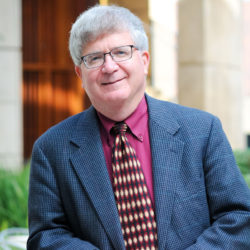Look past the politics — Kavanaugh superbly qualified for the U.S. Supreme Court
(This article was first published in the San Francisco Chronicle on September 9, 2018.)
U.S. Senate Judiciary Committee hearings on the Supreme Court nomination of Judge Brett Kavanaugh are over. They will go down in history as the most chaotic, disruptive, circus-like, non-substantive confirmation hearings in history. So far.
We learned very little about the nominee that we did not know before. He gave the expected (and welcome) measured answers to questions he could ethically answer, and declined (as all nominees) do to opine on issues that might come before him as a justice. He showed remarkable calm in the face of almost unprecedented slander and abuse.

We know that he served for 12 years with distinction on the Court of Appeals for the District of Columbia Circuit, and is highly regarded by appellate lawyers across the political spectrum. He got the American Bar Association’s highest rating. On the first day of the hearings, he was introduced by Lisa Blatt, a former clerk of Justice Ruth Bader Ginsburg and self-described liberal, feminist lawyer who has argued 35 cases before the Supreme Court — more than any other woman. She declares that Kavanaugh is unquestionably well-qualified, brilliant, has integrity and is within the mainstream of legal thought and that the Senate should confirm him. Donald Verrilli, President Barack Obama’s solicitor general, called Kavanaugh a distinguished jurist by any measure. Among nonpolitical lawyers and court observers, those assessments are typical.
On a court with a strong Democrat-appointed majority, he voted with the majority in about 97 percent of the cases. Harvard Law School regularly invites him to teach seminars on separation of powers, judicial process, and other issues, and students of every political stripe appreciate his candor, his depth of analysis, and his balance.
The opposition to Kavanaugh is actually not about him, but about the man who nominated him, Donald Trump. Democratic senators — especially those running for president or for re-election in liberal states — want to show their political base that they are part of the resistance to everything Trump stands for. The irony is that Kavanaugh is a remarkably un-Trumpian nominee.
Whereas Trump is populist, intentionally divisive, anti-establishment, immoderate, and contemptuous of many of traditional norms of comity and civility, Kavanaugh is a product of the establishment, gets along with colleagues across the spectrum, respects precedent and plays by the rules. Any Republican president would have placed Kavanaugh on his short list. He has no associations with the Trump wing of the Republican Party. Trump nominated him in deference to the legal elite of the party, including the Federalist Society, many of whom are as concerned about Trump’s character and disposition as any Democrat.
The notion that any Trump nominee is illegitimate because he would shield Trump from hypothetical future subpoenas or prosecutions is belied by history. Nixon’s appointments voted against him in United States vs. Nixon, and Clinton’s appointments voted against him in Clinton vs. Jones. Kavanaugh has no closer relationship to Trump that those appointees did to the presidents who appointed them.
So what emerged from the hearings that we did not already know?
We learned that 15 years ago, Kavanaugh suggested that an op-ed written by someone else overstated the consensus among legal scholars that Roe vs. Wade was settled law. Well, Kavanaugh was probably right. Consensus among legal scholars is hard to come by. That doesn’t mean Roe is in danger. Opponents have predicted that every Republican nominee since Robert Bork would lead to overruling Roe, and it hasn’t happened. I doubt that more than one, possibly two, justices would vote today to overrule the decision, and Kavanaugh isn’t likely to be among them.
We learned that after the Whitewater investigation of President Bill Clinton, Kavanaugh, who had worked on Kenneth Starr’s investigative team, came to the conclusion that free-wheeling investigations of the president can be damaging to the institution. Well, who didn’t? That is why Congress overwhelmingly decided not to reenact the law under which Starr was appointed. Kavanaugh has never suggested that current procedures for investigating the president are unlawful.
Democrats tried to resurrect claims that Kavanaugh misled the committee back at the time of his previous confirmation to the D.C. circuit, but there is no more evidence of prevarication now than there was then.
We learned that Kavanaugh opposed racial profiling at airports after 9-11, that he worried that the U.S. Department of Transportation affirmative action polices might be in violation of Supreme Court standards, and that he was asked how his former boss, Justice Anthony Kennedy, might vote on Guantanamo-related issues. (As a judge, Kavanaugh voted that the Bush administration prosecution of Salim Hamdan for war crimes was unlawful.) None of these things would be regarded as significant by anyone not already committed to opposing the nominee on other grounds.
It is time for Americans to draw back from the hyper-partisanship that is poisoning our political life. If Kavanaugh is unacceptable as a justice to liberals and Democrats, no Republican nominee would pass muster. As sure as tit-for-tat, the result would be that no Democratic nominee in the future will be evaluated on his or her judicial merits, either. That would be a sharp departure from the times when Justices Ginsburg could be confirmed 96-3and Antonin Scalia 98-0. The effect on our judicial system and our ability to survive as a politically pluralistic nation could be severe.
Michael W. McConnell is the Richard & Frances Mallery professor and director of the Constitutional Law Center at Stanford Law School, a senior fellow at the Hoover Institution, and former judge on the U.S. Court of Appeals for the 10th Circuit from 2002-2009.
